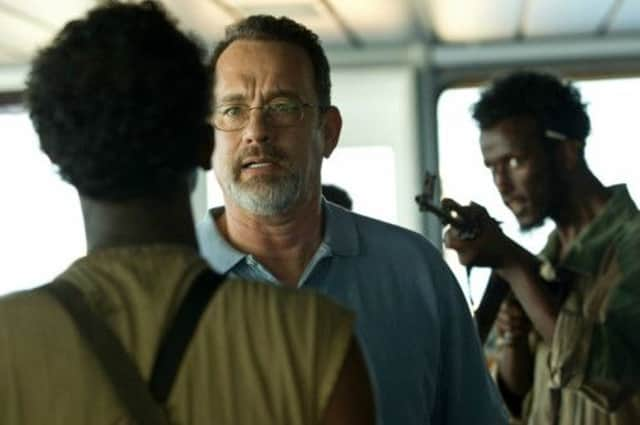US Seals seize rogue Libya oil tanker


Navy Seals boarded the Morning Glory on Sunday night in international waters in the Mediterranean Sea.
Libyan militia demanding regional autonomy and a share of oil wealth managed to load crude onto the privately-owned ship last week, which evaded a Libyan navy blockade.
Advertisement
Hide AdAdvertisement
Hide AdThe episode has embarrassed Tripoli’s government which has sacked prime minister Ali Zeidan over his failure to crackdown on the militias.
Echoing the Tom Hanks blockbuster Captain Phillips, the Seals stormed the tanker, owned by Egyptian businessmen, and took control of the vessel, which the Pentagon said had been held by three armed Libyans.
The standoff over control of Libya’s oil illustrates how fragile the North African nation’s stability remains since the Nato-backed civil war that led to the fall of Colonel Muammar al-Gaddafi nearly three years ago.
With its army still nascent, a weak government has been unable to impose its will on former anti-Gaddafi fighters and militias that use their military muscle to make demands on the state, often by targeting the vital oil sector.
Among the key figures is rebel commander Ibrahim Jathran, who had been tasked with securing Libya’s oil supplies, only to turn on the government.
In the short term, the tanker’s seizure by American forces is likely to prevent any more attempted oil sales by the rebels, who in August took control of three export terminals accounting previously for 700,000 barrels a day of exports.
“Oil is the economy’s artery. The government will not allow anyone to fool around with the assets and resources of the Libyan people,” the Libyan government said in a statement.
Before his sacking Mr Zeidan had dramatically threatened to sink the oil tanker last weekend but it escaped.
Advertisement
Hide AdAdvertisement
Hide AdNo-one was hurt in the raid, which was approved by president Barack Obama and requested by the Libyan and Cypriot governments, a Pentagon spokesman said.
He added: “The Morning Glory is carrying a cargo of oil owned by the Libyan government National Oil Company. The ship and its cargo were illicitly obtained from the Libyan port of Es Sider.”
It was the second time in six months that US forces have become involved in Libya.
A special forces team snatched a suspected al-Qaeda suspect off the street as he returned home from prayers in the capital Tripoli in September.
The Cypriot foreign ministry said the Morning Glory was now heading west in the Mediterranean with a US military escort.
It was anchored 18 miles south-west of Cyprus when the operation occurred at about midnight local time.
The Morning Glory was flagged in North Korea, but Pyongyang said on Thursday it had notified Libya and maritime authorities that it had severed all ties with the ship because of the vessel’s contraband cargo.
There was no immediate reaction from the federalist rebels, based in eastern Libya. The tanker’s escape highlighted the weakness of government forces, which had claimed several times that the 37,000-tonne ship was under their control only for it to slip into international waters after a firefight.
Advertisement
Hide AdAdvertisement
Hide AdThe intervention by US forces gives a boost to the fragile Libyan government in its fight to impose order on the vast North African state, whose transition to democracy has been upset by tribal, regional and political disputes.
Western powers, worried that the country might slide deeper into chaos, have been training Libyan armed forces and attempting to cajole conflicting parties in government to reach a settlement, with little progress so far.
A successful sale of Libyan oil outside government control was always going to be complicated for the rebels.
A Cypriot police source said three men – described as two Israelis and a Senegalese – were detained for questioning on Saturday on suspicion of attempting to buy the tanker’s cargo, but were freed after a court refused to issue an arrest warrant.
The source said they flew a Learjet into Cyprus on Friday evening, chartered a vessel from a yachting marina in Larnaca and headed to the tanker.
The government fears federalism might open the door for secession and similar protests by other regions, although the rebels say they do not want to break up Libya.
Libya’s government also faces a major financial crisis as oil production has fallen to a little over 200,000 barrels per day, from 1.4 million in summer when a wave of protests at oil fields and ports started. Oil is the main source of revenue for the budget and to fund basic food imports.